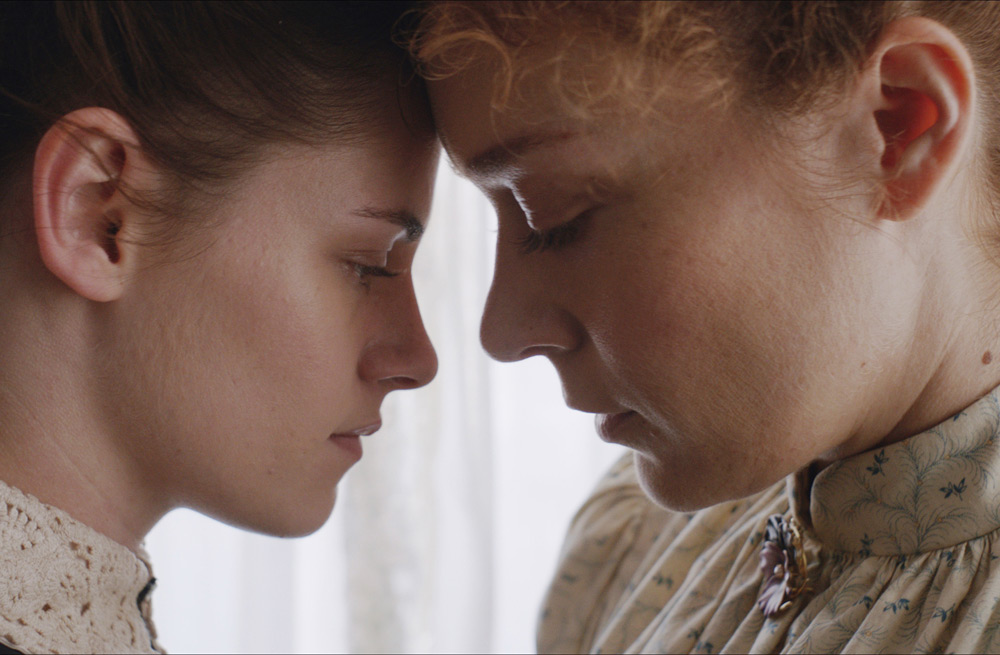It always felt disappointing that more people didn’t see Craig William MacNeil’s searing feature debut “The Boy,” a slow-burn horror film that had the gutteral thrills of a grindhouse movie without ever feeling as cheap, thanks to his exceptional craftsmanship. However, apparently, a few of the right people did since there couldn’t have been a better choice to direct “Lizzie,” the inherently sordid tale of the vicious axe murders Lizzie Borden stood accused of committing that resists the stuffiness that usually accompanies period pieces from the 19th century.
A great deal of credit belongs to a wicked script from Bryce Kass, straddling the fine line between class and crass as it details the bond that forms between Borden (Chloe Sevigny, at her calculating best), the youngest member of the third richest family in New England, and her family’s live-in servant Bridget (Kristen Stewart), a timid maid who is essentially an orphan following her mother’s passing. From the start, Lizzie sees Bridget as more than the help, insisting to call her by her real name instead of the one assigned to her (“Maggie”) by her stepmother (Fiona Shaw). Bridget’s arrival at the Borden house comes at a tense time – Lizzie can no longer stand being under her father Andrew’s roof, particularly with the woman that replaced her late mother, but she has trouble going out into public, prone to seizures that Andrew (Jamey Sheridan) feels brings the family shame when occurring out in the opening. But the family’s misfortune exists solely within the walls of the house as Andrew’s land deals keeps creating vast wealth, a fact that when coupled with Andrew’s belief that Lizzie is mentally unstable, leads to a call to Uncle John (Denis O’Hare), who he puts in charge of his daughter’s finances going forward, despite John’s admission that neither Lizzie or her sister Emma (Kim Dickens) have ever really taken to him.
As Lizzie mentions to someone during a rare night out at the theater, her father likes to keep their house dark, yet somehow Kass and MacNeil go beyond snuffing out the candlelight to deliver an engrossing, morbidly funny thriller as Lizzie hatches plans with Bridget to regain control of her fortune, but more importantly her destiny. Sevigny and Stewart know what’s up from the start, giving these quiet characters rich inner lives and delivering killer turns as the women who spend a good deal of time hunting around each other like caged animals who crave connection but distrustful of one another because of how often they’ve been burned before, making their inevitable embrace all the more satisfying and Sheridan and O’Hare both brilliantly play “noblemen,” by class definition only, who can barely hide their contempt for them.
Rising to the level of the top-flight cast he assembled, MacNeill gives them plenty to do, not only in words, but deeds, shrewdly using acts as simple as the notes Lizzie and Bridget pass to each other and food being served to speak volumes about the characters while pushing the narrative forward at an appropriately unforgiving pace. As he showed in “The Boy,” he’s gifted at taking effective yet familiar cinematic tropes such as jump scares and slow, deliberate camera pans and reworking them into an unnerving rhythm and tone he’s firmly established as distinctly his own and with editor Abbi Jutkowicz, every scene seems to squeeze every ounce of tension that it can from either holding a shot or showing as little mercy in delivering an abrupt edit as Lizzie comes to have towards those who have wronged her. Either way, “Lizzie” cuts deep.
“Lizzie” will show twice more at the Sundance Film Festival on January 25th at 9:30 p.m. and January 26th at noon at the Temple Theater.




